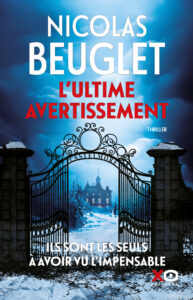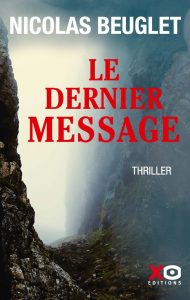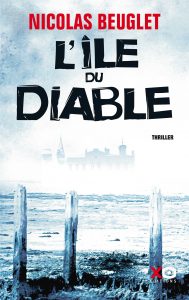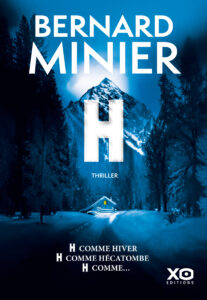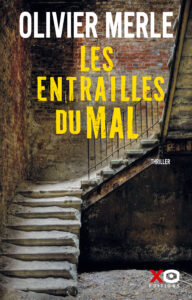The Archipelago of the Forgotten
This story will make you doubt everything you thought you knew…
Detectives Grace Campbell and Sarah Geringën know this much: even though they have diametrically opposite personalities, they must work together to catch “the faceless man”—the architect of a diabolical plan to destroy humanity.
They have only one lead: a manor house lost in the Scottish mists. Behind the closed shutters of the residence, a dour young widow moves about in the shadows. But is this woman really who she pretends to be? What the detectives uncover is beyond their worst assumptions.
In a race against time, Grace and Sarah travel from Loch Ness to Norway, pushing back the boundaries of fear to reach the mysterious Archipelago of the Forgotten—the last stronghold against the reigning chaos of the world.
A chilling and disturbing thriller.
What’s taking place in the mysterious islands leaves us with a choice. What kind of civilization are we—are you—going to choose?
The Archipelago of the Forgotten reunites detectives Sarah Geringën and Grace Campbell. This is Nicolas Beuglet’s sixth work of fiction.
Author's interview
In The Archipelago of the Forgotten, you bring back your two heroines, the Norwegian Sarah Gerigën, and the Scottish Grace Campbell.
This was already the plan when I was writing The Last Message, the first volume in the Grace Campbell trilogy. And at the end of Devil’s Island, last volume of this trilogy, Sarah is left with a terrible dilemma. However, I discovered that she was capable of figuring out the problem on her own, without my guidance. So I left her alone for a while and began working on a new investigator, Grace Campbell. Three years later, I knew that Sarah was ready to tell us who she had become. I also knew that she would need help to wrap up the investigation she had begun in my “absence”.
Grace and Sarah seek to understand the true intentions of the Olympus corporation…
Indeed, Grace and Sarah discover that they have both been trying to defeat Olympus, the malevolent organization, and have both found evidence that seems to prove that the multinational organization is about to launch its third and final plan to take over our civilization, and it’s doubtful that this plan will contribute to the well-being of humankind.
In your novel you bring to light what Thomas Edison was working on during the last six years of his life, namely, perfecting a “necrophone” capable of capturing the aura of the dead. Isn’t this unexpected?
Intellectually, I’m interested in that which seeks to go beyond what we understand and can observe in the present. Anything that asks the question “what makes us who we are” as a species and as an individual. I have followed the research done in this field, especially scientific research. That a man as pragmatic as Thomas Edison would have worked tirelessly on a machine that communicates with the dead says a lot
about the deeper answers we, as humans, are seeking, even the most materialistic among us.
One of your characters cites Bernanos’ France Against the Robots, declaring that modern society is a universal conspiracy against any inner existence. Do you denounce in your works the pan-digital and the difficulty of maintaining a critical mindset?
The digital is nothing more than a new tool. What worries me the most is its ability to condition the world’s population at an industrial level. I believe that despite the laws in place – we all want to respect the rules that allow us to live in harmony – humans also need to know that they can escape a certain level of surveillance to feel at peace. Yet the digital, in the guise of protecting us of course, has the potential to invade our private lives and our intimacy. What is a human being when even their most inner thoughts are known and controlled by a higher power? Nothing more than an existential absurdity, or a machine.
You bring up the question of transhumanism and the metaverse, that crazy race towards the immortality of the body and the soul.
I deeply believe that certain corporations have an economic interest to sell us on the technological revolution by nourishing our imaginations with a Hollywood image of the world. But my sense is that the greater part of humanity does not want this immaterial or a virtual existence. There is and there will always be a curiosity about it, a desire to try it, but most people will realize that, when they are cut off from the earth and reality, they die. The only real danger is that these gigantic corporations won’t give us the choice.
lire toute l’interview


